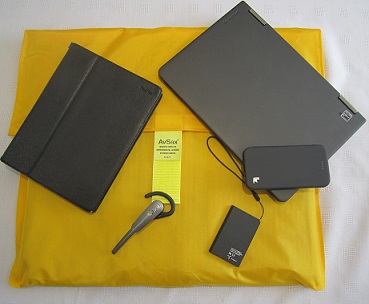 An AvSax fire containment bag and some of the personal electronic devices that go in it
An AvSax fire containment bag and some of the personal electronic devices that go in it
One person has died and 50 hurt during a huge rise in the number of fires caused by lithium-ion batteries in Japan over the last five years.
The shock results from a survey in the country reveal that two of the injured were badly hurt and from now on only battery chargers which have passed stringent tests will be allowed on sale in the country.
The fires have been in personal electronic devices ranging from mobile phones to laptops and even bikes.
The statistics – reported by online news website Nippon.com - reveal that the number of incidents where lithium-ion batteries in these kind of personal electronic devices either overheated or caught fire has risen alarmingly from just 70 in 2013 to 175 in 2017.
Of these, almost 70% of the devices caught fire.
This is particularly worrying in the confined space on aircraft which has led to inventions such as the AvSax fire containment bag to tackle the problem.
Well over 13,000 AvSax are now carried on aircraft operated by 65 airline companies across the world – including some of the biggest and best-known.
AvSax – which won the Queen’s Award for Enterprise in the UK in 2018 - has been used 28 times to deal with emergencies on board aircraft since the start of 2017.
The Japan statistics released by the National Institute of Technology and Evaluation in Japan show that the total number of personal electronic devices which have become worryingly hot or ignited in the five years to 2017 is 582.
Of these cases, 150 involved portable chargers, 142 were laptops, 79 were smartphones and 32 were motor-assisted bicycles.
Of 368 cases caused by problems with the devices, 209 involved products subject to recall and the institute said many incidents could have been prevented if the products had been collected and exchanged.
As from February 1 portable chargers for lithium-ion batteries have become subject to regulations under the Electrical Appliances and Materials Safety Act. Products without a special sticker which shows they have passed inspections under the law will not be made available for sale.
* Written by Andy Hirst at AH! PR http://www.ah-pr.com/